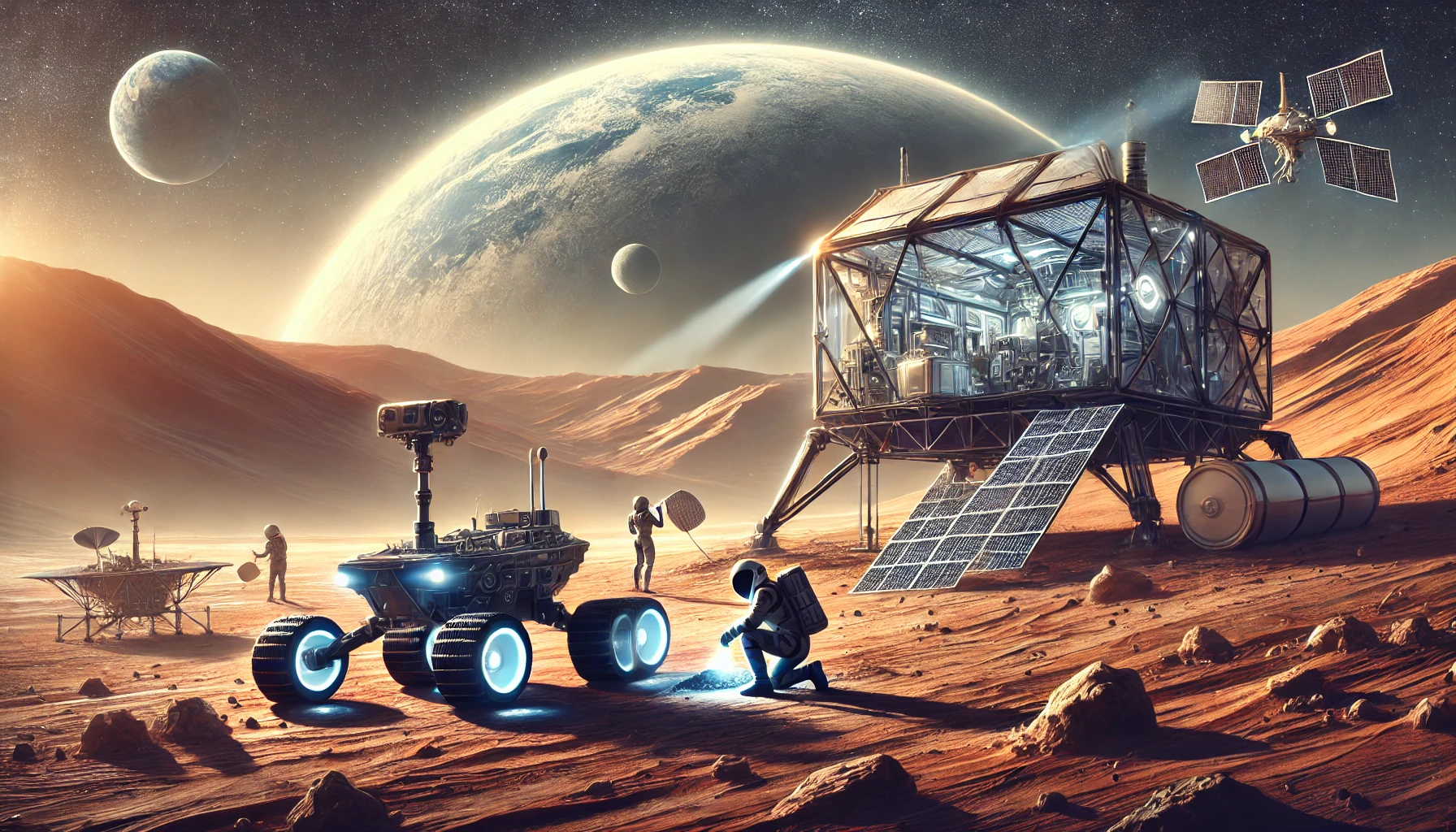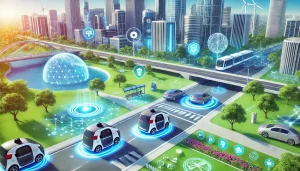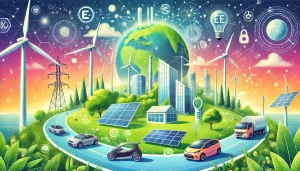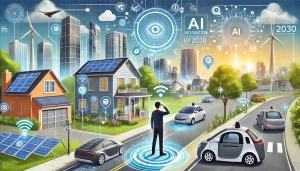Artificial intelligence (AI) has been transforming various aspects of daily life, and by 2030, its impact will be even more significant. From virtual assistants on smartphones to advanced systems in areas such as healthcare, transportation, and education, AI is reshaping how we interact with the world.
In everyday life, AI is present in solutions that optimize time and resources. For example, smart home devices are becoming more common, helping automate tasks such as temperature control, security, and shopping. By 2030, these tools are expected to integrate even further, creating fully connected and autonomous homes. Furthermore, advancements in natural language processing will enable more human-like interactions with machines, facilitating everything from task execution to companionship for people in isolation. AI will not only meet practical needs but also contribute to emotional well-being.Artificial Intelligence: Predicted Changes in Daily Life by 2030
The changes that AI will bring by 2030 promise to revolutionize how we work, commute, and even take care of our health. In the workplace, AI systems already automate repetitive tasks, allowing professionals to focus on more creative and strategic activities.
In mobility, autonomous vehicles are expected to gain greater relevance. By 2030, it is expected that public transportation and delivery services will be dominated by automated fleets, making cities more efficient and reducing accidents.
In healthcare, AI will assist doctors in diagnosing diseases with even greater accuracy. In addition, wearables equipped with artificial intelligence will be able to constantly monitor the user's health, preventing problems before they even manifest. The integration of AI with mobile devices and medical systems will create a revolution in personal care. Furthermore, advancements in natural language processing will enable more human-like interactions with machines, facilitating everything from task execution to companionship for people in isolation. AI will not only meet practical needs but also contribute to emotional well-being.By 2030, artificial intelligence will not only be a tool, but an essential part of our daily routine. Imagine a typical day: when you wake up, your home will have already adjusted to the ideal temperature and started preparing coffee. Your virtual assistant will organize your schedule and provide a personalized summary of the news.
During work, intelligent platforms will suggest solutions to problems and optimize task flows, saving time. After work, AI apps may recommend leisure activities or recipes based on your preferences. Even social interactions will be impacted. Social networks will use AI to moderate content more efficiently and suggest connections based on real interests. Routine will be deeply influenced by a combination of convenience, personalization, and efficiency, driven by AI.The Near Future: AI Integrated into Everyday Life by 2030 The integration of AI by 2030 will be marked by advances in accessibility and inclusion. Technologies that were once restricted to large corporations will be available to small businesses and individuals, democratizing access to innovations.In education, AI will create personalized learning experiences. Students will be able to rely on virtual tutors that will identify their specific difficulties and adjust the content according to their learning pace. This personalization promises to reduce educational inequalities.
In addition, AI will integrate sectors such as retail and food. Shopping done in automated supermarkets and meals prepared by specialized robots will no longer be a vision of the future, but part of the daily lives of millions of people around the world.
Impacts of AI in Everyday Life: What to Expect by 2030
The impacts of AI by 2030 will be felt in multiple dimensions. In urban environments, smart cities equipped with AI systems will optimize the use of resources such as energy and water. Sensors will monitor real-time traffic, reducing congestion and improving quality of life.
- In the entertainment field, streaming platforms will use AI to create immersive experiences. Interactive movies, tailor-made music, and games based on personal preferences will transform the way we consume content. On the other hand, the advancement of AI also brings challenges. Automation can generate discussions about the future of employment, while ethical issues such as privacy and algorithmic bias will need to be resolved for AI to be adopted responsibly.
- 2030 and AI: Revolutions in Our Daily Lives The revolutions brought by AI until 2030 will not only be technological, but also social. In the financial market, advanced algorithms will offer personalized consulting, helping people manage their finances more efficiently.
- In agriculture, AI will help increase productivity through real-time crop monitoring and precise application of resources such as fertilizers and water. This will contribute to global food security. Atmospheric research will provide data on the Martian climate and how it can be manipulated to sustain human life.
These findings will have a direct impact on Earth science, influencing areas such as biology, chemistry, and physics. Additionally, the technological advancements developed for these missions will benefit other sectors, such as healthcare, telecommunications, and renewable energies.
What to Expect from Mars Exploration Initiatives in the Next Decade
The 2020s will be marked by a renewed space race, with Mars as the main destination. In addition to scientific missions, there is a major focus on preparations for human presence on the planet. Some expected advancements include:
- Development of sustainable habitats: Technologies to create habitable environments on Mars are being tested, from inflatable structures to self-sustaining life support systems.
- More advanced robotic exploration: Rovers and drones equipped with AI will increase efficiency in exploring large areas.
- International and private cooperation: Partnerships between space agencies, such as NASA and ESA, and private companies, such as SpaceX, will be crucial to share costs and accelerate innovations.
With these advancements, the vision of humans on Mars, which once seemed distant, will become increasingly tangible.
Mars: The Red Planet and Future Space Missions
Future missions not only aim for scientific discoveries, but also test the logistics of interplanetary travel. SpaceX is leading efforts in this regard, with plans to launch fleets of the Starship rocket to Mars in the coming years. These launches will focus on cargo transportation and landing tests on different Martian terrains.
Furthermore, research on advanced propulsion, such as plasma engines and nuclear systems, promises to reduce the travel time to Mars, currently estimated at around seven months. This reduction will be crucial for manned missions, reducing the risks associated with prolonged exposure to space radiation.
On the other hand, ethical challenges, such as avoiding biological contamination of Mars and protecting its potential ecosystems, remain important topics to be addressed before humans reach the planet.
On the Way to Mars: Technologies and Objectives of the Next Missions
The planned missions until 2030 have ambitious goals and cutting-edge technologies. Among the innovations that promise to mark this new era of exploration are:
- Artificial Intelligence: Used for autonomous navigation of rovers and drones, allowing the exploration of inhospitable areas.
- Sustainable Energy: Solar systems and compact nuclear reactors will provide energy for long-duration missions.
- Bioengineering: Tests with plants and microorganisms capable of surviving on Mars will help create life support systems.
These technologies will not only ensure the success of the missions but also serve as a foundation for Martian colonization.
Life on Mars? The Role of New Missions in Planet Exploration
The search for signs of life is one of the main objectives of the upcoming missions to Mars. ExoMars, with its rover Rosalind Franklin, will use drills and spectrometers to search for biomarkers underground, where conditions are more favorable for preserving traces of life.
In addition, the return of samples to Earth will allow for more detailed analysis, using advanced equipment to detect possible microorganisms or complex organic molecules. This research will be crucial in answering the question: are we alone in the universe?
Conclusion
The upcoming missions to Mars represent a milestone in space exploration. With a focus on science, technology, and preparations for future human missions, these initiatives promise to expand our knowledge and pave the way for a new era of discoveries.
As we move towards the Red Planet, collaboration between nations and companies will be essential in overcoming technical and ethical challenges. Mars is not only the next destination for space exploration, but also a symbol of the infinite possibilities that humanity can achieve.
FAQ
1. When will the first samples from Mars arrive on Earth?
The NASA and ESA's Mars Sample Return mission plans to bring samples back in 2033.
2. Will SpaceX take humans to Mars?
SpaceX plans unmanned missions for 2026 and manned missions in the following years.
3. Why is exploring Mars so important?
Mars can offer insights into the origin of life and planetary evolution, as well as being a potential site for human expansion.
4. What are the biggest challenges of Mars missions?
Challenges include biological contamination, space radiation, and transportation logistics.
5. Will the colonization of Mars be viable?
With technological advancements and global cooperation, Martian colonization can become a reality in the coming decades.




